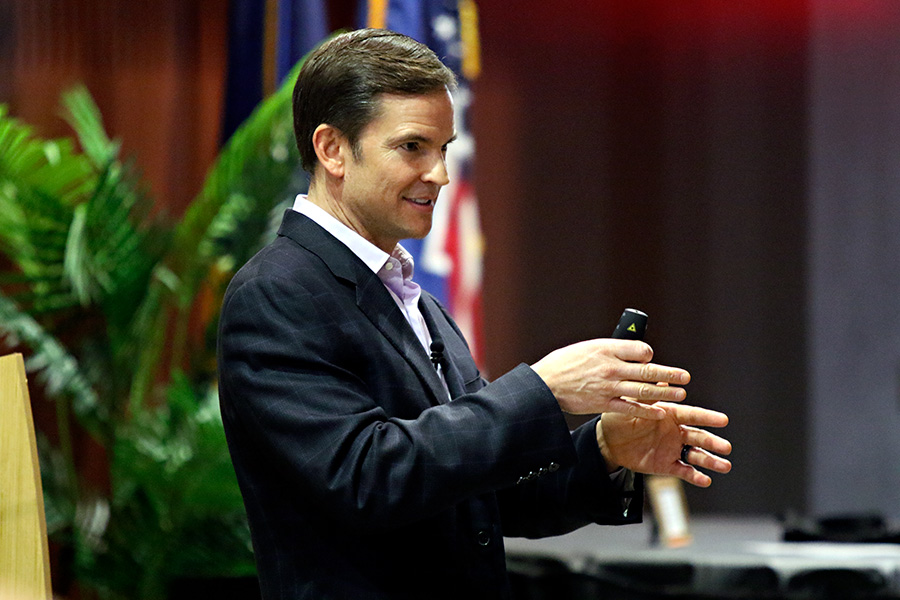Michael Goguen, the well-known Whitefish venture capitalist and philanthropist, says gene-editing technology could be the key to curing cancer, Alzheimer’s and other diseases that have confounded humans for generations.
Goguen discussed the topic at Flathead Valley Community College’s 2018 Honors Symposium Lecture Series on Feb. 20 during a talk titled “Re-Programing Evolution: The Promise and Perils of Gene Editing.”
“This technology could lead to a very different world,” Goguen told the large crowd assembled at the college’s Arts and Technology Building. “For the first time in human history, we have the ability to change the code of anything.”
Goguen said he had an opportunity to work with researchers in gene editing while he was with Sequoia Capital, the California-based investment firm where he was a partner until 2016.
Goguen spoke about Dr. Jennifer Doudna, who has been one of the leading researchers in what has been dubbed the “CRISPR revolution.” CRISPR stands for “clustered regularly interspaced short palindromic repeats.” The technology that Doudna helped develop could allow scientists and doctors in the future to “edit” defective DNA that create cancers or other diseases. The technology has been called one of the greatest discoveries in human biology.
Goguen said Doudna’s work has made gene editing so simple that it can be done for only a couple hundred dollars.
But he says with “great power comes great responsibility.” While gene-editing technology could be used to cure diseases and help humans live longer, some are worried it could get into the wrong hands. Goguen noted that recent government reports have listed gene editing as a possible weapon. There is also the concern that gene editing could lead to unintended consequences.
For example, the mosquito is one of the deadliest creatures on earth, killing 1 million people annually, according to the World Health Organization. A majority of mosquito-related deaths are caused by malaria. Goguen said it would be possible to use gene editing to manipulate mosquitos so that they are all males and eventually go extinct, which could lead to other repercussions.
“Gene editing would allow us to treat almost anything, but the question is, ‘How should we use this technology?’” he said.
FVCC’s 2018 Honors Symposium Lecture Series is focusing on technology and how humans use it. The series runs through March 20. Upcoming talks will focus on China’s rise to power, cyber security and automation. For a full schedule, visit www.fvcc.edu/honors-symposium.
